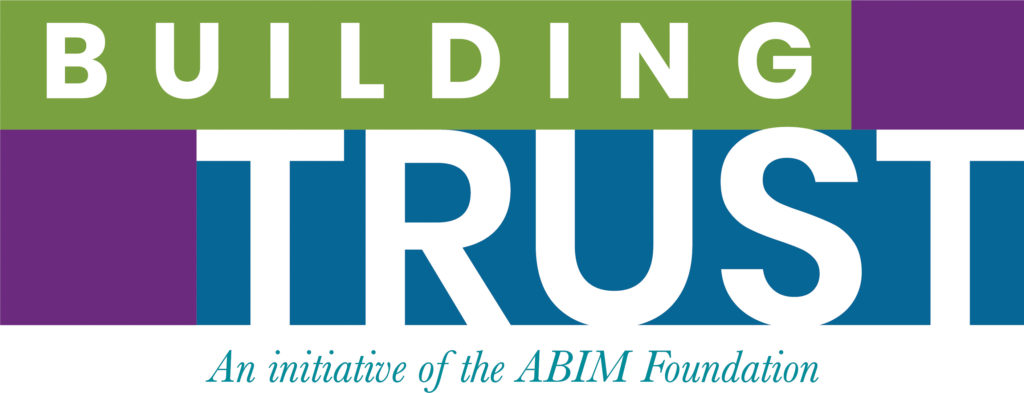Building Trust, Improving Diagnosis
What follows is an interview with Daniel B. Wolfson, Executive Vice President and COO of the ABIM Foundation, a not-for-profit foundation focused on advancing medical professionalism and physician leadership to improve the health care system.
Tell us about the Building Trust initiative and how it relates to diagnostic quality and safety.
Building Trust is an ABIM Foundation initiative that aims to elevate the importance of trust as an essential organizing principle to guide operations and improvements in health care. “Mistrust is a breeding ground for poor outcomes,” said Daniel Wolfson.
The Foundation is focused on improving trust between patients and their clinicians. “This trust increases the likelihood that patients will share the most accurate and complete histories with their physicians, leading to more accurate and timely diagnoses,” said Wolfson. “Correct diagnoses are also essential to high-value care – if a diagnosis is wrong, everything that follows may be harmful, wasteful or both.”
They are working on a series of interrelated projects to promote trust – including efforts to highlight promising practices, promote research, and support efforts to build trust and diversity in medical schools and health care organizations. These come together in their Building Trust agenda.
Are there resources related to the Trust Initiative that relate to improving diagnosis?
“One of our challenges is identifying promising practices. We have collected trust practices in the areas of competency, reliability, caring/compassion and communication skills, all of which affect timely and accurate diagnosis,” said Wolfson. “This is a collective effort across the health care system, and we are seeking to build a community of organizations interested in adopting trust-building as a strategy to improve health care. We invite organizations to share their resources and practices that can build patient-physician trust and better diagnoses.”
The Foundation is looking forward to contributions from members of the Coalition and SIDM. You can learn more about the initiative at buildingtrust.org, and should contact Tim Lynch (tlynch@abim.org) with the ABIM Foundation if you are interested in participating.
Do you involve patients in the design and development of these programs? If so, how? If not, is that something you’ve thought about or have planned down the road?
“We have worked with Public Agenda to develop a set of patient-driven ideas for improving trust that we will be releasing later this year,” said Wolfson. “We also have a patient advisory council, and are in the midst of sponsoring public opinion research to learn more about patient attitudes about trust.”
How do you measure success with the Trust Initiative?
“We will measure our success by the number of organizations that adopt trust as a key strategy to improve health care, and ultimately the impact that has for patient care,” said Wolfson. “We want to raise the prominence of trust, which is essential to a strong health care system but which has too often gone unappreciated.”
What were some barriers you needed to overcome in order to advance this work? How did you overcome them?
Trust is often not perceived as an issue that organizations should make a priority, or that they can do something about. Research is also lacking about how organizations can build trust. “We have shared approaches that organizations can adopt to build trust through our Trust Practice Challenge, and we are in the midst of a project with AcademyHealth to identify and prioritize gaps in research that we could help fill,” said Wolfson.
What does it mean to the ABIM Foundation to be part of the Coalition? Has it shaped any of your diagnostic improvement work?
“We are proud to be a member of the Coalition and to have supported the development of a SIDM toolkit to assess clinical reasoning and help clinicians avoid common traps that lead to misdiagnosis,” said Wolfson.

Get ACT Update Delivered to Your Inbox
Want to see more content like this? Stay informed on that latest activities from members of the Coalition to Improve Diagnosis. Sign up for the ACT Update Newsletter.
